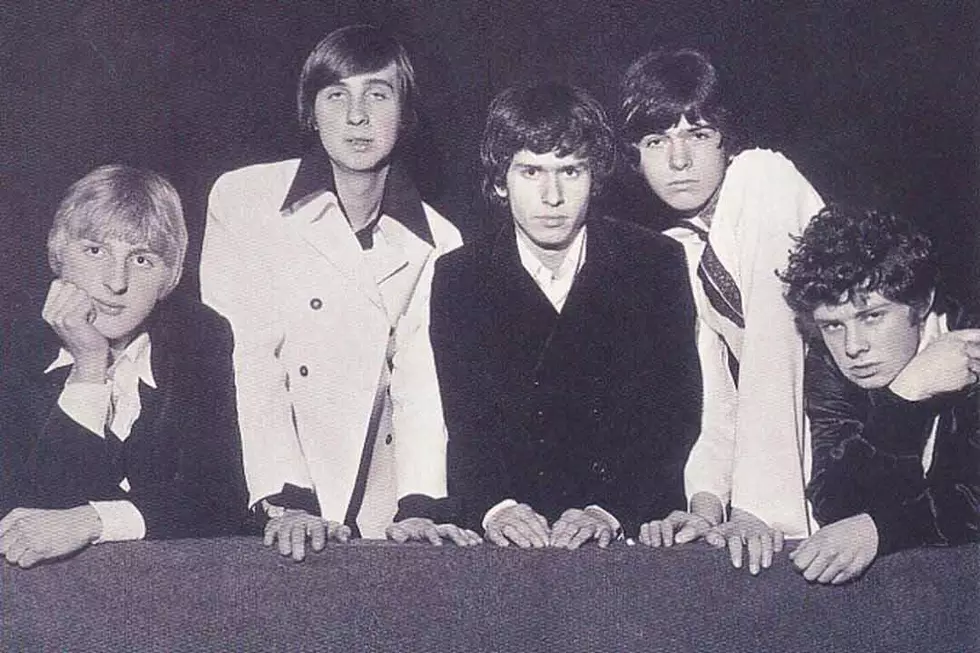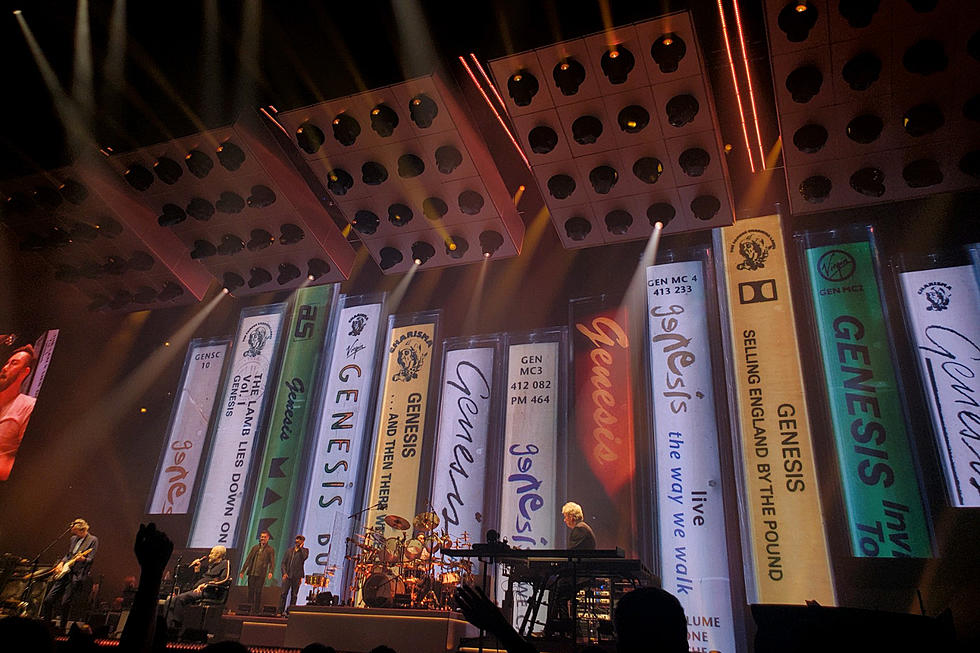
Why Genesis’ Still-Overlooked Debut LP Made Such a Small Splash
Genesis' debut album, From Genesis to Revelation, arrived on March 7, 1969 with barely a hint as to what they would become over the next few years.
"I have quite a lot of affection for From Genesis to Revelation," Genesis keyboardist Tony Banks said in the official band biography, Genesis: Chapter and Verse. "I don't love it or anything, but it was part of my childhood."
Genesis formed in 1967 while the all of its original members – Banks, Peter Gabriel on vocals, Mike Rutherford on bass and guitar, Anthony Phillips on guitar, and drummer Chris Stewart – were attending Charterhouse School. Still teenagers, they were caught up in the spirit of the day and wanted to pursue music full-time. "At that stage, pop music was a symbol of the revolution, about to overthrow the establishment," Rutherford said in the documentary Genesis: A History.
Enter Charthouse alumni Jonathan King who had a Top 20 worldwide hit in 1965 with "Everyone's Gone to the Moon." Though his own musical career soon stalled, King became a talent agent for Decca Records. The band got a demo tape to him, and in 1968 King signed Genesis to the label. Initially struck by their frontman's voice, King wanted to rename the band Gabriel's Angels, an idea they politely vetoed.
Their debut single, "The Silent Sun" (backed with "That's Me") was issued prior to Genesis' debut, but went nowhere. The song showed a definite influence of early Bee Gees, a favorite of King's.
"I was trying to imitate Robin Gibb, who had the more emotive soulful voice," Gabriel said in Genesis: Chapter and Verse. Though the baroque-styled pop of that first single sounded like a hit, it failed to chart anywhere. Genesis forged ahead, recording the album and developing their songwriting style. "For many musicians it's all about playing rather than writing," Gabriel continued. "Whereas for us, writing was the center of it all."
The LP starts off with the unassuming "Where the Sour Turns to Sweet," a gentle piano-based ballad that was also issued as their second single. Acoustic guitars and strings weave in and out as the world first hears Gabriel's magnificent voice. Brass and percussion adorn the short-but-sweet track, ultimately making a great opener to the album. Things turn upside down as the next song rumbles in.
Listen to Genesis Perform 'Silent Sun'
"In the Beginning" ranks as one of the band's lost classics and possibly the highlight of the album. It shows Gensis in a darker light and hints, ever so slightly, at what was to come. Gabriel is in charge here, with a more domineering vocal and in general a more rock 'n' roll approach.
Aside from the Bee Gees, there are other influences of the era like the Moody Blues, the Byrds, and, of course, the Beatles that all helped to shape the early Genesis sound. "The Serpent" originally titled "She Is Beautiful," is another high point that shows small-but-shimmering signs of a more progressive influence at work: "Dark night / The planets are set / Creator prepares for the dawn of man," Gabriel sings as the ethereal backing vocals entwine with Phillips' out-of-character biting guitar lines.
"In the Wilderness" is another that should have been a hit. Though never released as a single, it has a vibrancy that reeks of the pop charts of the era. Again, the Bee Gees influence is in full swing, with the incredibly catchy chorus of "Music / All I hear is music" ringing out crystal clear. Another interesting aspect of the album is that it plays like a continuous piece with short musical interludes between the songs, each one based on the theme of the song it follows.
"The Conqueror" is another acoustic-guitar driven pop rocker showing a lean toward Moody Blues territory, while "In Limbo" shows off a soul influence. "A Place to Call My Own," which ends From Genesis to Revelation, was originally a long piece more in line with the next steps the band would take, but it was ultimately cut in short form to fit in with the rest of the LP. "The recording was done very quickly," noted Gabriel. "We had no real control over the way things sounded, although you can hear where we were starting to explore things melodically."
There is a loose-fitting lyrical theme to the album, based on the Bible, with various mythic references popping up throughout. "From Genesis to Revelation was really a composite of the best tracks we had up to that point," Banks said. "It felt easier to hide behind a big story. ... In the early days, we tended to use myths and legends as a way of writing." Gabriel added: "The concept of the album was broad enough to allow us to include all kinds of songs."
The album went on to sell a whopping 650 copies upon its initial release, something Jonathan King takes partial blame for. "I had this brilliant idea to call it From Genesis to Revelation, and not have an artist's name on it," King said in Genesis: A History. "This was a terrible mistake! It got bumped into all the religious bins of the record shops and nobody ever heard it."
Sadly, From Genesis to Revelation seems to be most remembered for its lack of sales, which is a real shame as there are many great songs here and makes for a very enjoyable ride from start to finish. Go give it another spin, or perhaps, a first spin and hear what this incredible band's first steps sounded like.
Meet the New Boss: Rock's Replacement Singers
The 'Silly' Phil Collins Joke That Went Too Far
More From 98.3 The Snake










